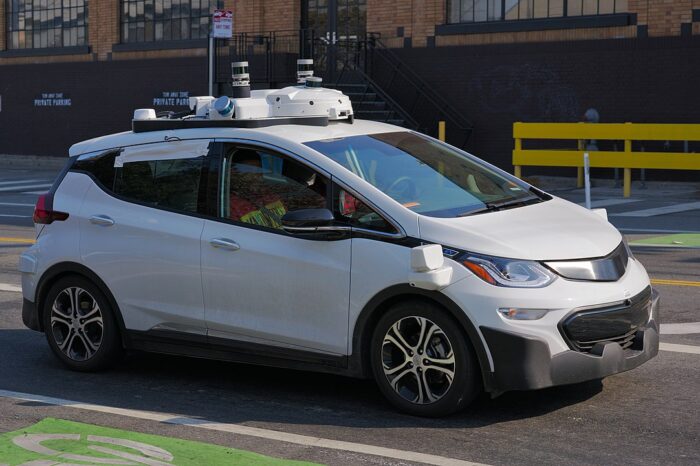As summer approaches, the prospects of a bipartisan infrastructure package appear slim. While a few members of both parties continue to say a compromise is possible, the two sides are not in the same ballpark in terms of spending, with Republicans proposing less than $300 billion of new funding, (and almost no new support for EVs), compared to the $1.7 trillion in new investment included in President Joe Biden’s latest offer. Fortunately, New York and New Jersey don’t need GOP support to get the $11.6 billion Hudson River tunnel built, which the Biden administration just greenlit.
Over in the private sector, Aussie EV charging company Tritium is going public via SPAC while Finland’s MaaS Global is acquiring Spain’s Wondo, Ferrovial’s mobility platform. Tesla is — finally — responding to criticism of its Autopilot. Over in scooterland, Bird rolls out the bigger, stronger and hopefully more cost-efficient Bird Three, while Lime launches a $5.99/month subscription service. In the world of autonomy, Silicon Valley’s Kodiak is partnering with Korea’s SK to pursue commercial driverless trucking in Asia.
![]()
No deal in sight: A group of Senate Republicans proposed a $928 billion infrastructure package, which they described as a good-faith effort to strike a deal with Democrats on infrastructure. However, a closer look shows that only about $257 billion of that is new spending. The rest is spending scheduled to occur through ongoing federal programs. In contrast, President Joe Biden’s most recent offer includes $1.7 trillion in new spending.
Democrats are somewhat divided in their response. Some say the latest GOP proposal shows the minority party has no interest in going big on infrastructure and that it’s time for Democrats to go it alone. However, a small contingent of moderates holds out hope for a compromise.
In one of the most striking contrasts, Republicans offered only $4 billion for EVs, compared to the $174 billion Biden is putting on the table.
Union-friendly EV incentive: On a party-line vote, the Senate Finance Committee advanced a bill to hike incentives for EV buyers. The legislation, if approved by Congress, would raise the maximum credit to $12,500 – but only for vehicles made in the U.S. by union workers. EVs manufactured in the U.S. by non-union workforces are eligible for a $10,000 credit, while the maximum credit for imported EVs is $7,500, the current maximum. This could be a big lift to GM and Ford as they try to break Tesla’s dominance in the EV market. Despite the best efforts of the United Autoworkers, Tesla remains the only U.S.-based auto manufacturer whose U.S. employees are not unionized.
Perhaps most significantly, the law would repeal the existing limit on the number of incentives a manufacturer can claim. Currently Tesla and GM EVs are not eligible for the existing $7,500 credit because the two automakers have already exceeded the 200,000 cap.
But all that is to say the prospects of the bill overcoming a Republican filibuster in the Senate remain slim. However, the proposed EV incentives could become a reality as part of a larger infrastructure bill if the Senate’s 50 Democrats unite to pass it through the reconciliation process, which can be used to evade filibusters.
So just how green are EVs? Jefferies analyst Simon Powell says that in order to gain a meaningful “environmental dividend” on EVs, consumers are going to have to own them for longer than they typically own gas-powered cars. However, Jessika Trancik, the MIT professor behind an interactive tool that helps consumers understand the emissions produced by different types of cars, told the New York Times in January that it only takes EVs between six to 18 months to offset the carbon-intensive manufacturing process.
The Dept. of Good Intentions: Some lawmakers in New York want the state to develop a five-star rating system to grade cars on the threat they pose to pedestrians and cyclists. The proposed bill asks the state’s DMV to take into account various factors, such as the presence of safety features like automatic braking systems, as well as the number of deadly crashes the vehicle in question has been linked to.
GM on fire: The auto giant is buying back dozens of Chevy Volt EVs that were sold between July 2016 and September 2019 over concerns about the batteries catching on fire.
An EV SPAC Down Under: Tritium, the 20-year-old Australian battery charging company, is going public via SPAC at a valuation of $1.8 billion. Unusually, there will not be any private investment accompanying its merger with Decarbonization Plus Acquisition Corp, a blank check company focused on green technology. The company says its direct current chargers, although pricier than alternating current chargers –– can put 100 miles on a battery in only five minutes.
Utah tries AI on potholes: Utah’s Department of Transportation is the first major government agency to try out Payver, an AI-powered technology developed by local startup Blyncsy that uses crowdsourced video to identify roadway problems: potholes, debris blocking the road, fading lane dividers etc. The company says it will be entering partnerships with other agencies around the country soon.
Feds OK long-delayed NYC tunnel: The Biden administration has given New York and New Jersey the green light to build a long-awaited rail tunnel under the Hudson River. The tunnel is projected to cost $11.6 billion.
Electric Explorer: Fresh off a positive presidential review of the electric F-150 Lightning, America’s #2 car manufacturer announces plans for an EV version of its best-selling SUV, the Ford Explorer.
Big Tesla is watching you: As scrutiny of Tesla’s driver assistance programs mounts, the automaker announces it’s activating a camera in the vehicle to make sure the driver’s hands are on the wheel when using Autopilot. Tesla has long contended that sensors in the steering wheel make sure that the driver is in the driver’s seat with their hands on the wheel, but it’s not hard to find videos on social media that of Teslas driving when there is no one in the driver’s seat.
A MaaSive deal: MaaS Global, the pioneering Finnish MaaS operato, acquires Wondo, a mobility platform launched by Spanish infrastructure giant Ferrovial (Spanish language article). Ferrovial remains involved as a major shareholder in Maas Global.
![]()
Investing in safer drones: Airspace Link, a Detroit-based cloud platform that local governments use to manage airspace in the age of drones, raises $10 million in a Series A round. The 20-employee startup is looking to serve a vital role in helping government agencies around the world to manage a rapidly growing commercial drone traffic.
Kodiak looks to Asia: Kodiak Robotics, the Silicon Valley autonomous trucking startup, announces a partnership with South Korean conglomerate SK to explore offering commercial trucking services in Asia.
 The smartest scooter yet: Bird, the Santa Monica-based micromobility operator, is out with its newest e-scooter, the Bird Three. Both the vehicles and the batteries are bigger and built to last longer. The most novel feature is the diagnostic monitoring software that will be constantly assessing the health of the battery, even forcing the scooter to flow down if the battery shows signs of overheating. Bird hopes that this could cut down on the substantial maintenance costs that have thus far prevented scooter operators from turning a profit.
The smartest scooter yet: Bird, the Santa Monica-based micromobility operator, is out with its newest e-scooter, the Bird Three. Both the vehicles and the batteries are bigger and built to last longer. The most novel feature is the diagnostic monitoring software that will be constantly assessing the health of the battery, even forcing the scooter to flow down if the battery shows signs of overheating. Bird hopes that this could cut down on the substantial maintenance costs that have thus far prevented scooter operators from turning a profit.
The cheapest scooter yet? Lime unveils Lime Prime, a monthly subscription program — for those who use the service frequently. For $5.99 a month, members get a big discount each time they use a Lime scooter. In most markets, they won’t pay the $1 unlocking fee that Lime charges for each ride. In markets without unlocking fees, they’ll get a 25% discount on the entire ride.
![]() The Huffington Post looks at one of the big near-term challenges for EVs: they still aren’t practical for people who live in apartments.
The Huffington Post looks at one of the big near-term challenges for EVs: they still aren’t practical for people who live in apartments.
Bloomberg CityLab wonders whether state road-building agencies in charge of America’s interstate highway system will align with the Biden administration’s efforts to rethink highways.

Innovative mobility in Sacramento: The Sacramento Area Council of Governments (SACOG) is looking for a program coordinator for its innovative mobility team. The team is focused on ways to encourage walking, biking, teleworking and transit use. SACOG is accepting applications until June 14.
Kick-start your career at Lime: The micromobility operator seeks to fill executive positions in markets around the world. Among many other roles, it is looking for chief business officers in Austin, Chicago, San Francisco and Washington D.C.
Fly high at Airspace Link: The software startup focused on drone management is staffing up after a $10 million seed round. It has 10 positions open, including director of marketing, all of are at least partially remote. The company stresses its commitment to work/life balance: “None of our benefits are about trapping people at the office or cajoling them into endless overtime. Just the opposite.”
Have a job listing that’s perfect for the CoMotion community? Please send it to jcraver@comotionglobal.com.
Enjoy the Week in Review? Get it delivered directly to your inbox by signing up for the CoMotion>>NEWS newsletter.






